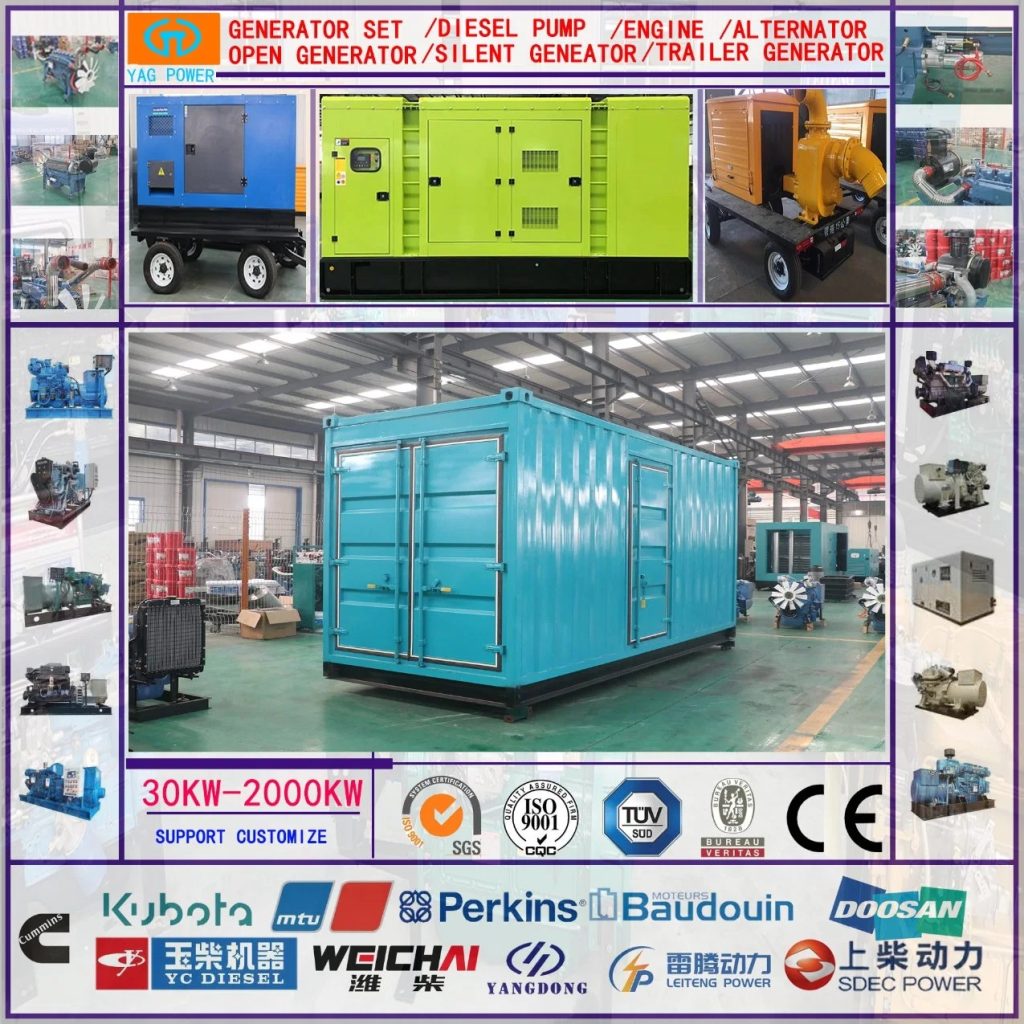Introduction:
In remote areas or locations where the power grid is unreliable, diesel generators play a crucial role in providing a stable and continuous power supply. One key application of diesel generators is islanding operation, where they are used to create isolated power systems to ensure uninterrupted electricity supply. This article will delve into the significance of diesel generators for islanding operation, their working principles, benefits, challenges, and best practices to maximize efficiency and reliability.
1. Understanding Islanding Operation:
Islanding operation refers to the ability of a power system to disconnect from the main grid and operate independently as an isolated microgrid. This capability is essential in scenarios where the main grid experiences a blackout or failure, and the microgrid needs to continue providing power to critical loads. Diesel generators are commonly employed in islanding operation due to their reliability, quick start-up time, and ability to provide continuous power for extended periods.
2. Working Principles of Diesel Generators in Islanding Operation:
Diesel generators operate on the principle of converting chemical energy in diesel fuel into mechanical energy through combustion. This mechanical energy is then converted into electrical energy by the generator unit. In islanding operation, diesel generators are synchronized with the microgrid and automatically start up when a grid failure is detected. The generator takes over the load, ensuring that critical loads receive uninterrupted power until grid connection is restored.
3. Benefits of Diesel Generators for Islanding Operation:
- Reliability: Diesel generators are known for their high reliability and robustness, making them ideal for islanding operation where continuous power supply is critical.
- Quick Start-Up: Diesel generators have a short start-up time, enabling them to rapidly provide power during grid failures.
- Fuel Availability: Diesel fuel is readily available in most locations, making it convenient for powering diesel generators in remote or off-grid areas.
- Scalability: Diesel generators can be easily scaled up or down to meet varying power demands in islanding operation, providing flexibility in system design.
4. Challenges and Considerations:
While diesel generators offer numerous advantages for islanding operation, there are also challenges and considerations that need to be addressed:
- Fuel Storage: Proper fuel storage and management are essential to ensure uninterrupted operation of diesel generators in islanding mode.
- Maintenance: Regular maintenance and servicing of diesel generators are crucial to prevent breakdowns and ensure optimal performance.
- Emissions: Diesel generators produce emissions that can impact air quality, so implementing emission control measures is important for environmental sustainability.
- Cost: The initial investment and operational costs of diesel generators can be significant, requiring careful consideration of budget and cost-effectiveness.
5. Best Practices for Maximizing Efficiency and Reliability:
To maximize the efficiency and reliability of diesel generators in islanding operation, the following best practices can be implemented:
- Routine Maintenance: Schedule regular maintenance checks and servicing to keep the diesel generators in optimal condition.
- Fuel Management: Implement proper fuel storage and monitoring systems to ensure a continuous fuel supply for the generators.
- Load Management: Manage the load distribution across the microgrid to prevent overloading of the diesel generators and ensure efficient power delivery.
- Remote Monitoring: Implement remote monitoring and control systems to enable real-time monitoring of the diesel generators' performance and status.
6. Case Studies and Success Stories:
Several real-world examples showcase the successful implementation of diesel generators for islanding operation. For instance, in remote islands where grid connectivity is limited, diesel generators have been instrumental in providing reliable power supply to communities, hospitals, and essential services. Additionally, industrial facilities and critical infrastructure sites utilize diesel generators for backup power during grid outages, ensuring continuous operation and preventing costly downtime.
7. Future Trends and Innovations:
As technology advances, there are ongoing developments in diesel generator systems for islanding operation. Integration of renewable energy sources such as solar and wind power with diesel generators is gaining traction to improve the sustainability and efficiency of microgrids. Energy storage solutions like batteries are also being integrated to enhance the stability and reliability of islanded power systems. Furthermore, advancements in control systems and automation are enhancing the seamless transition between grid-connected and islanded modes, improving overall system performance.
made a post :
Diesel generators play a pivotal role in providing reliable power supply for islanding operation, ensuring uninterrupted electricity supply in remote areas or during grid failures. By understanding the working principles, benefits, challenges, and best practices associated with diesel generators in islanding mode, stakeholders can optimize the efficiency and reliability of power systems. As technology continues to evolve, diesel generators will remain a key component in creating resilient and sustainable microgrids for diverse applications.

